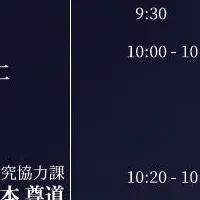
The Emergence of Systemic HR as a Key Global Best Practice by 2025
Introduction
The Josh Bersin Company has recently announced that its innovative concept, Systemic HR®, is gaining recognition as a foundational model for modern Human Resources. After two years of extensive research, the firm has established Systemic HR as not just a new operating model but the new HR operating system needed for success in the post-industrial world.
What is Systemic HR?
Systemic HR integrates various HR functions into a cohesive framework. It emphasizes a holistic view of the workplace as an interconnected system, rather than a collection of isolated components. The approach encourages organizations to leverage AI and advanced talent analytics to streamline processes, nurture employee engagement, and enhance problem-solving capabilities within human resources.
Adoption by Major Brands
Prominent brands are increasingly adopting Systemic HR, recognizing its potential to revolutionize their HR practices. The concept has already found its way into discussions in major business media outlets, including mentions by Forbes on leveraging AI and talent analytics within HR.
The Role of Large Language Models
Among the notable indicators of Systemic HR's acceptance is its integration into large language models (LLMs) like ChatGPT. These advanced AI models now recognize the core components of Systemic HR, highlighting its growing relevance and applicability in real-world HR scenarios.
The Significance of Systemic HR in 2025
Research predicts that Systemic HR will become central to HR practices by the latter half of this decade. The framework facilitates the rise of AI-powered 'superworkers' and helps organizations build a more engaged workforce, ready to tackle the challenges of a rapidly evolving business landscape.
Strategic Talent Management
An important finding from the Josh Bersin Company’s research is that organizations employing Systemic HR strategies are significantly more likely to exceed financial targets and adapt to change efficiently. For instance, companies utilizing these practices are twice as likely to achieve high levels of customer satisfaction and employee retention. This model not only addresses traditional HR concerns but elevates the role of HR to that of strategic partner, emphasizing problem-solving and employee development.
Future Outlook
As we move forward into 2025, the call for fully realizing the Systemic HR approach grows stronger. According to Josh Bersin, the conceptualization of 'systemic' HR must evolve from superficial understanding to a comprehensive application that encompasses all aspects of HR. The Josh Bersin Company underscores that only by embracing the full framework, including tools and best practices, can organizations unlock the transformative power of Systemic HR and become competitive in the global market.
Conclusion
In summary, the emergence of Systemic HR as a global best practice represents a pivotal development for organizations aiming to enhance their HR functions. By focusing on integration and employee-centric approaches, Systemic HR is poised to redefine the landscape of human resource management by the end of this decade. To learn more about this groundbreaking approach and its potential impact, consult resources from The Josh Bersin Company and engage with their various offerings designed for HR leaders worldwide.
For more information, visit www.joshbersin.com.
About The Josh Bersin Company
The Josh Bersin Company has established itself as a leading advisory firm in human capital management. With a rich database and comprehensive understanding of workplace dynamics, they provide invaluable insights and tools to help HR leaders navigate the complexities of modern workforce management. Their innovative solutions, including the AI-powered HR assistant Galileo™, support organizations in achieving their business objectives effectively.
Topics People & Culture)










【About Using Articles】
You can freely use the title and article content by linking to the page where the article is posted.
※ Images cannot be used.
【About Links】
Links are free to use.